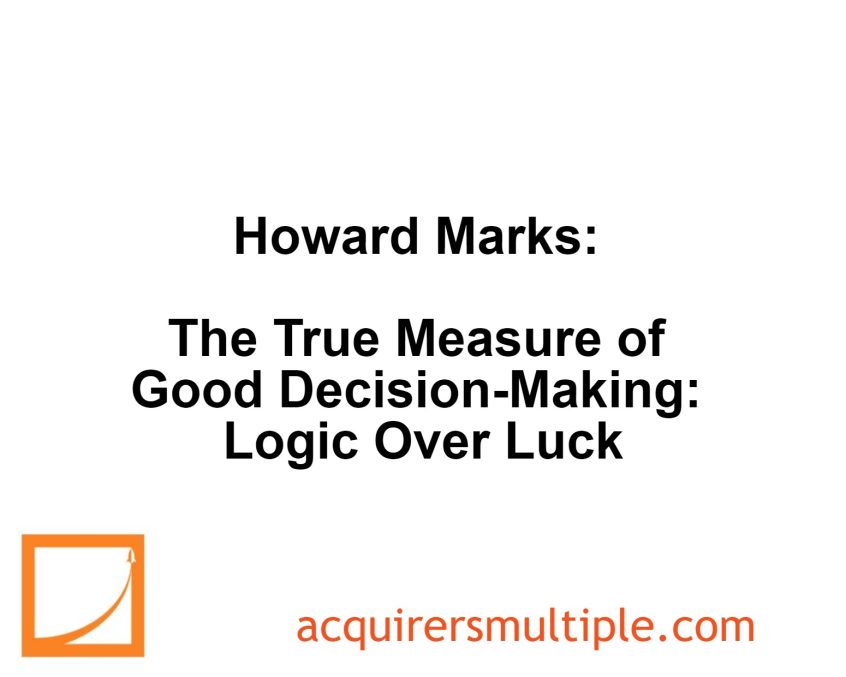In his book – The Most Important Thing, Howard Marks highlights a fundamental lesson about decision-making: outcomes do not necessarily reflect the quality of decisions. He learned early at Wharton that external factors, often unpredictable, can determine the success or failure of decisions.
This concept was further emphasized by Nassim Taleb, who discussed how random events can unjustly reward poor decisions or punish wise ones. For instance, a decision to build a ski resort in Miami would generally be viewed as unwise. However, if an unexpected blizzard were to make the resort profitable, that outcome should not retroactively justify the decision.
True quality in decision-making involves making informed, logical choices based on available information at the time, without the benefit of knowing future outcomes. This principle is essential for investors, who must distinguish between profitable outcomes and well-made decisions, especially when results may not immediately align with the wisdom of their choices.
Here’s an excerpt from the book:
One of the first things I remember learning after entering Wharton in 1963 was that the quality of a decision is not determined by the outcome.
The events that transpire afterward make decisions successful or unsuccessful, and those events are often well beyond anticipating. This idea was powerfully reinforced when I read Taleb’s book. He highlights the ability
of chance occurrences to reward unwise decisions and penalize good ones.
What is a good decision?
Let’s say someone decides to build a ski resort in Miami, and three months later a freak blizzard hits south Florida,
dumping twelve feet of snow. In its first season, the ski area turns a hefty profit. Does that mean building it was a good decision? No.
A good decision is one that a logical, intelligent and informed person would have made under the circumstances as they appeared at the time, before the outcome was known. By that standard, the Miami ski resort looks like folly.
As with risk of loss, many things that will bear on the correctness of a decision cannot be known or quantified in advance. Even after the fact, it can be hard to be sure who made a good decision based on solid analysis but was penalized by a freak occurrence, and who benefited from taking a flier. Thus, it can be hard to know who made the best decision.
On the other hand, past returns are easily assessed, making it easy to know who made the most profitable decision. It’s easy to confuse the two, but insightful investors must be highly conscious of the difference. In the long run, there’s no reasonable alternative to believing that good decisions will lead to investment profits. In the short run, however, we must be stoic when they don’t.
You can find a copy of the book here:
Howard Marks – The Most Important Thing
For all the latest news and podcasts, join our free newsletter here.
Don’t forget to check out our FREE Large Cap 1000 – Stock Screener, here at The Acquirer’s Multiple:




